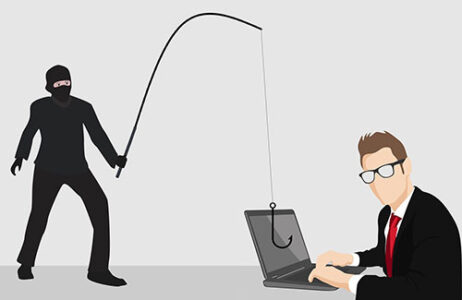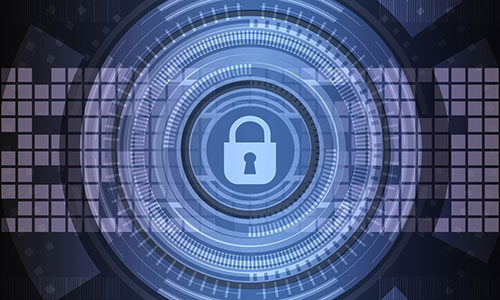The danger of catching a computer virus is constant trouble for every computer user. Viruses affect business operations, your computer’s functioning, data safety, and many other cases where third-party cybercriminals can profit from your private information. Malware attacks happen annually, even in big businesses like Facebook, Quora, Marriott, and others, as 133% of records became compromised in 2017 alone. So, what can you do to avoid computer viruses and save your computer from data leaks? Here is several friendly advice from those who already experienced this issue and are willing to help you.
Where do we get the trouble from?
First and foremost, you should do several actions yourself. Before you download the antivirus, think, how viruses can get into your system. If you have no possible clues, there are some options that you should check:
- Passwords. Do you remember all your passwords to all your websites? If you do, you might be in trouble already. It does not mean that having a great memory is inconvenient for you, but are your passwords reliable? Or, maybe, you have one password “to rule them all”? If you do, change as many passwords to your sites, apps, and logins or better note them down. Remember that an easy password is easy to guess or crack. Do not use your birthday, name, or any other apparent info that many people know. 12345 – is equally an unreliable password. So, make sure that your security does not have leaks possibility in the first place.
- Firewall. If your Windows already have a firewall, you’d better use it. Some of the protective features are already integrated into your Windows OS. ?heck their activity from time to time. 2671662 Microsoft Knowledge Base article can inform you of everything you need to know about virus types and updates that your system needs to work efficiently. Moreover, these features are free of charge and can already help you scan your system and spot their vulnerabilities.
- Patched programs. It is always seducing to get some of your programs free-of-charge. What is more, you may need something urgently, like a videomaker or Photoshop. You would not like to spend extra money on some applications you will not use for a long time. Still, the use of patched programs is dangerous as they may contain all kinds of malware – from tracking cookies to backdoor trojans that look like “cracks” for activation. Therefore, the use of such patches is your own risk, which you definitely can avoid.
- SPAM. Spamming can happen on any computer due to the faltered postal filters. You can spot such suspicious messages if they ask for some personal data or passwords parading as your bank, social network, unique website, or any other familiar pages. Some antiviruses can mark such messages, while numerous online posts allow them to slip into your inbox. That is why your personal caution is needed to sort your letters. Naturally, if SPAM letters have any attachments, you positively should not open them.
What can your friends suggest?
So, you have cleaned your system and made it ready for some real protection. What are your next steps? That is what your friendly advisors wish to share for your safety.
- Install antivirus. This should be a no-brainer, as you might forget about regular scans. Real-time protection is optimal for this case, as your professional application will watch over your operations and prevent malware from getting into your system. At present, cyberattacks evolve and you should beware not only viruses. Thus, banking, shopping, and even regular browsing can already lead to some malware threats. If you are concerned about the prices, the option to make such software more affordable can be found in numerous seasonal sales and offers. The additional useful feature of the professional antiviruses is that they offer phishing protection that saves you from suspicious sites or harmful banners. Additionally, you can filter the type of content you are willing to see or block some annoying site surfing functions.
- VPN. Open Wi-Fi connections are everywhere. Many users access them without thinking of the consequences, which is undoubtedly a bad strategy. Still, you need to travel and move around, so your Internet should accompany you. In this case, you can have two options to find a possible solution. Firstly, you can choose only those Wi-Fi options that have WPA or WPA2 encryption. These Wi-Fi networks are safer as their access is limited by the people present in a single airport, café, or library. Still, it does not give you full protection if a cybercriminal knows it too. So, VPN is helpful to confuse the perpetrator as your location, and your traffic is ciphered. Many antiviruses have built-in VPN, for example, Norton. Thus, VPN is an additional barrier from your data leaks, saved search history, logins, and location. By the way, the latter is known even to your Internet Service Provider (ISP).If you value your privacy and wish to confuse perpetrators, understand that a formidable VPN can successfully help you with it.
- Backup your computer. Imagine that the worst already happened and you have caught the virus. You can clean it, but it already corrupted some of the valuable data. What should you do? Naturally, you will have to restore a large number of files that are not so easy to fix. Sometimes, it is better to be ready for the worst-case-scenario and backup your valuable data on your computer or the external HDD. This idea may not look too-modern, but it is better to have some plan B if your situation is spinning out of control. Backups can be performed with your Windows/Mac features or the professional backup programs that will do this complicated task for you. A good idea would be to look for cloud options for backing up your data. So if you want to keep your computer and sensitive data on it safe, there are solutions that offer a backup for your whole system or separate SaaS applications like Microsoft 365 or Salesforce. For example, check out backup for Microsoft 365 contacts by CloudAlly.
Conclusion
Conclusively, getting a virus is very easy. Modern cybercrimes are getting more and more complicated, and it becomes handy to deal with them. You can still complicate a hacker’s life with your own hands if you choose the right password or a strong VPN. As for the viruses, they are easy to get and very hard to get rid of. Still, you can use these double-stage cleaning and help your computer to recover successfully from this ordeal.


